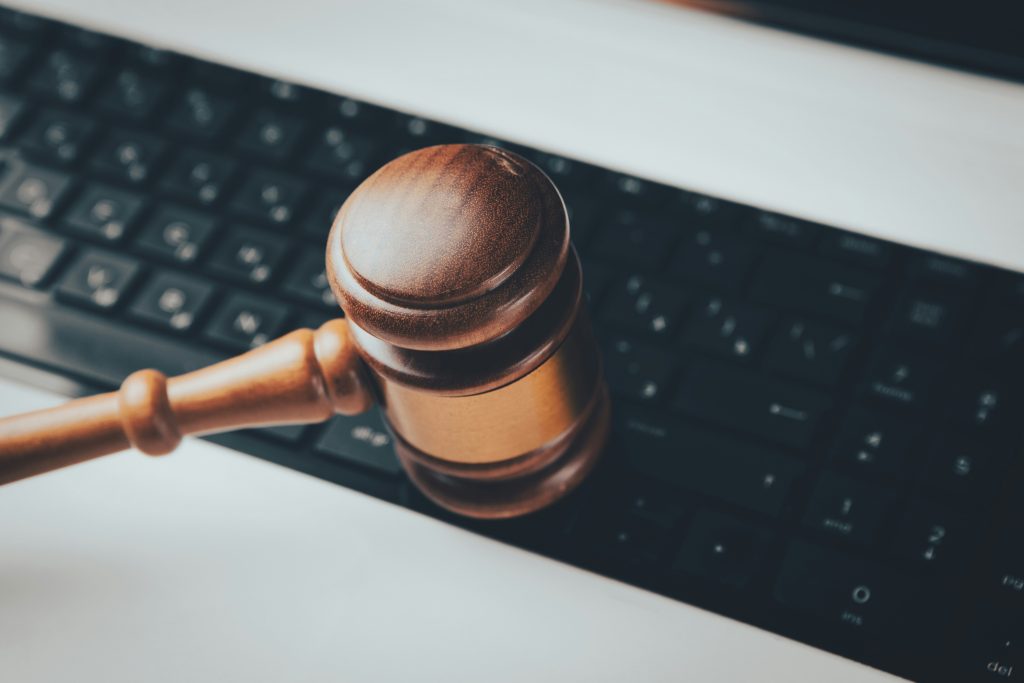
November 22, 2024 By Carol Britton Meyer
In a 47-page memorandum and order filed Nov. 20, U.S. Magistrate Judge Paul G. Levenson denied the motion for preliminary injunction filed by an attorney representing the parents of a Hingham High School student against Hingham Public Schools administrators and teachers claiming that their son’s rights were violated when he was disciplined for using artificial intelligence during the note-taking and draft phase for a history paper.
“In sum, the nation’s youth is primarily the responsibility of parents, teachers, and state and local school officials, and not of federal judges,” the document states in part. “. . . . This case well illustrates the good sense in that division of labor.”
However, according to Peter Farrell, attorney for the student’s parents — Dale and Jennifer Harris — the case will continue, “and we look forward to further developing the factual record by conducting discovery and continuing to ask probing questions.”
Farrell also had this to say in response to an email inquiry from the Hingham Anchor:
“We respect the Court’s order issued [yesterday] afternoon. The Plaintiff’s Motion for Preliminary Injunction is just that — preliminary. The factual record is underdeveloped record and no discovery has yet been conducted. That being said, it should not be lost on anyone that the Court took 47 pages to discuss the extensive evidentiary hearing on the record developed to date.”
Farrell went on to say that “of the several prayers for relief sought in the Plaintiff’s motion, the Plaintiffs sought the student’s immediate induction into the National Honor Society without further delay. Without this federal case, it would not have come to light that the student at issue in this case was treated differently than other students admitted to National Honor Society who had academic integrity infractions on their record when he was initially denied entry altogether. It is particularly telling that the school chose to admit the student to the National Honor Society within a week of the hearing on the Plaintiff’s Motion for Preliminary Injunction. The timing of that action was not a coincidence.”
The memorandum and order signed by the judge further states, in part, that the final consideration in weighing the grant of a preliminary injunction is the effect of the court’s action on the public interest: “There is, of course, a strong public interest in the protection of constitutional rights. . . . In this case, however, Plaintiffs have not shown a likelihood of succeeding on their constitutional claims. As such, the Court cannot find that issuing injunctive relief for Plaintiffs would serve any public interest in that regard.”
The document also states that “on the other side of the scale, there is a strong public interest in allowing school officials to do their work undisturbed by unnecessary lawsuits. It is apparent that this case has already consumed a considerable amount of time and energy, undoubtedly detracting from the resources available for teaching and administration. Defendants credibly suggest that such wastage would be magnified exponentially if teachers’ and school officials’ every decision regarding grades and discipline were subject to legal challenge.”
The decision went on to say that “unquestionably,” school officials are entitled to “a great degree of deference,” including their disciplinary actions.
“The Court agrees with defendants that issuing a preliminary injunction in this case would weaken the disciplinary toolbox of educators at HHS and hamper the ability to educate students on proper academic skills necessary for higher education and life in general,” the document reads.
The judge also stated in the decision that it is not the role of the federal courts to set aside decisions of school administrators and that while “public high school students do have substantive and procedural rights while at school,” there are limits regarding litigation related to school disciplinary proceedings and “the proper construction” of school regulations.
As background, a court hearing was held Oct. 22 related to the lawsuit filed by Dale and Jennifer Harris.
Following the hearing on the plaintiff’s motion for preliminary injunction in Massachusetts District Court, Farrell told the Hingham Anchor:
“This is an important case to bring on behalf of this promising student and to shine a light on the larger policy issues regarding the implementation of artificial intelligence in the public school setting. The Court heard testimony and legal argument on the extensive factual record and briefs that are publicly available. We respect the important work the Court must now undertake and will have no further comment at this time now that the Court has taken the Plaintiff’s Motion for Preliminary Injunction under advisement. The Court will issue a written decision in due course,” which occurred Nov. 20.
For full details about the case, go to https://www.hinghamanchor.com/hearing-scheduled-for-oct-22-in-ai-related-lawsuit-filed-by-parents-of-hingham-high-school-student/.



